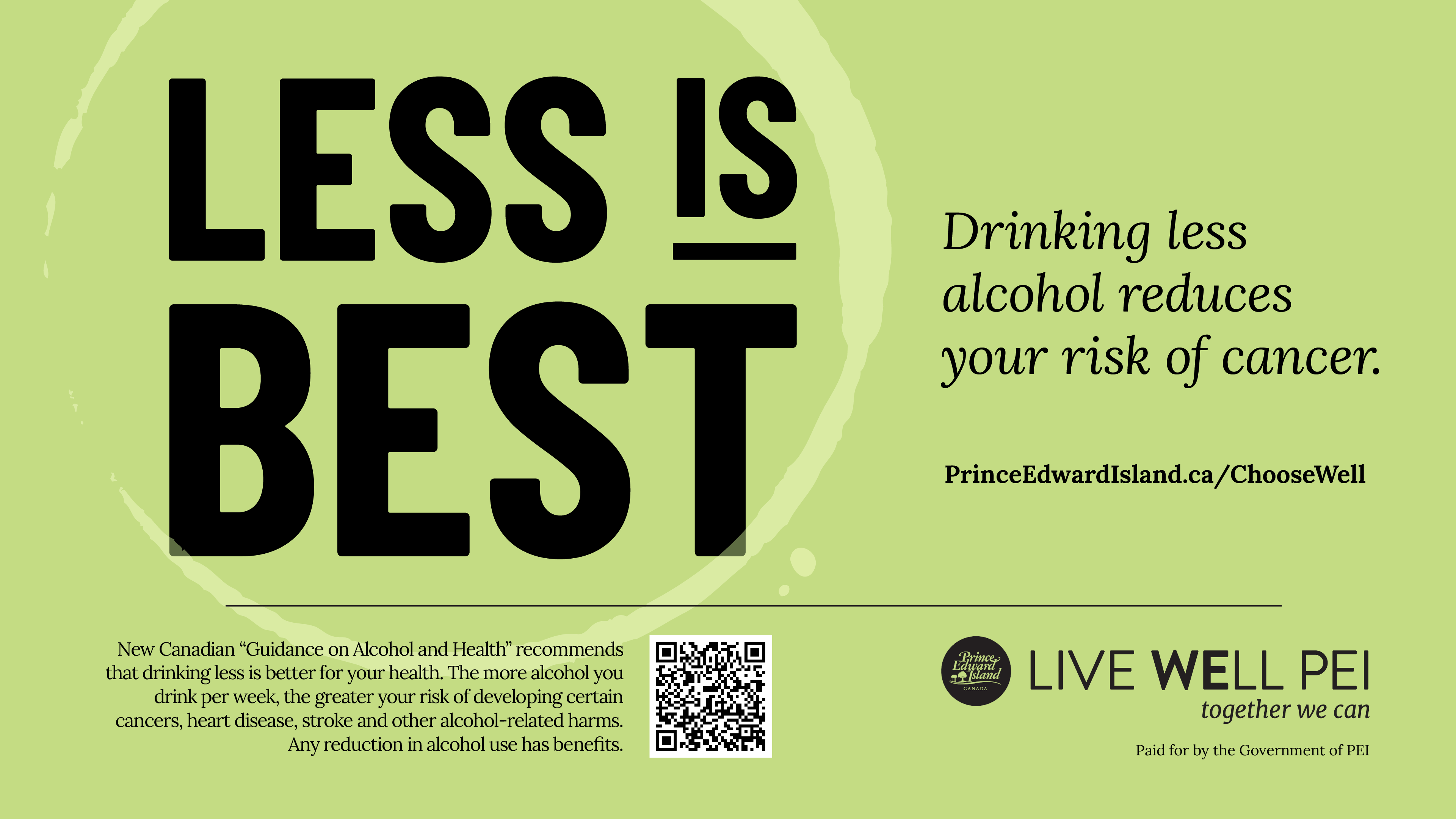Choose Well
Reducing alcohol use is one of the five action areas for health promotion in PEI. Drinking 7 or more standard alcohol drinks per week is considered high risk for several types of cancer (e.g., liver, breast, colorectal), liver disease, cardiovascular disease, stroke, and type 2 diabetes, along with preventable injuries and community harms, like interpersonal, domestic and family violence and motor vehicle accidents.
Did you know?
- In 2023, about 1 in 3 Islanders drank at levels considered high risk as per Canada's Guidance on Alcohol and Health (7 or more standard drinks per week).
- Alcohol-related harms cost PEI $131 million in 2020.
- Alcohol-related harms in PEI make up 47% of all substance-related costs. All other substances combined—legal and illegal—make up the remaining 53% of costs.
- In 2020, there were an estimated 6,969 ER and hospital visits, and 135 deaths attributed to alcohol in PEI.
What are MY Health Risks, Costs and Calories from Drinking Alcohol?
Personal health behaviours
Find out what you could gain or save by drinking less.
Canada's Guidance on Alcohol and Health
Creating supportive environments and community action
Learn more about Canada's Guidance on Alcohol and Health.
Looking to Reduce Alcohol in Your Community?
Personal health behaviours
Strengthening community action, creating a sense of community belonging and fostering supportive environments.
Alcohol Policy and Legislation
Creating supportive environments and community action
Healthy public policy, system-level change and improving health outcomes at a population level.





